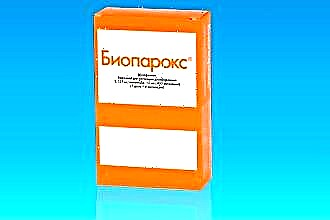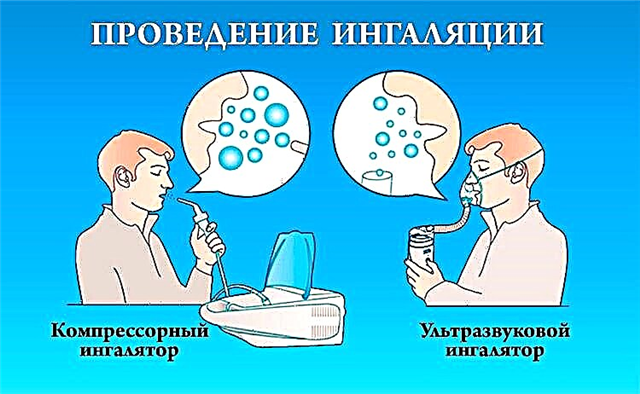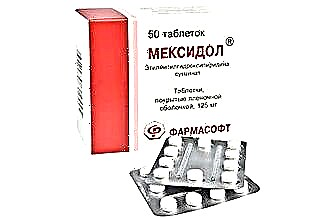Spray for sinusitis with an antibiotic is a medicine for topical use, the components of which do not penetrate into the bloodstream and do not create an excessive load on the liver, kidneys, heart, etc. The nasal preparation has a convenient dispenser that converts the liquid into an aerosol. A dosed portion of the medicinal suspension easily penetrates into the nasal canals and maxillary sinuses (sinuses). That is why it is advisable to use sprays for the treatment of sinusitis, not drops.

Antibiotic nasal preparations are used to treat bacterial and suppurative inflammation in the paranasal sinuses and nasal passages. Antimicrobial components of aerosols destroy the pathogenic flora in the nasal cavity, thereby accelerating the healing process. Timely use of local antibiotics for maxillitis (sinusitis) prevents the appearance of severe complications - hemisinusitis or pansinusitis.
About antibiotic sprays
In most cases, sinusitis is provoked by pathogenic bacteria - streptococci, meningococci, Pfeiffer's bacillus, staphylococci, etc. Bacteriostatic drugs (stop the multiplication of pathogens) or bactericidal (destroy pathogens) action can prevent their reproduction. In the absence of serious complications, sinusitis is treated with topical antibiotics - drops or sprays.
Spray is the most successful dosage form of the drug, through which it is possible to evenly distribute the aerosol over the surface of the nasal passages and maxillary sinuses. Unlike systemic antibiotics, they rarely cause side effects and act directly on inflammation. The use of aerosols reduces the risk of allergic reactions and microbial resistance to the active components of the drug.
Inappropriate use of antimicrobial agents can lead to disruption of microflora in the upper ENT organs.
Local antibiotics are prescribed only for lingering rhinitis, maxillitis and bacterial nasopharyngitis. Systemic drugs are included in the treatment regimen only in the presence of complications and ineffectiveness of local therapy.
The best antibiotic drugs
For the treatment of nose with sinusitis, drugs with a low degree of allergenicity and toxicity are used. Their antimicrobial components act locally and do not penetrate into the bloodstream, therefore, they do not affect the work of the detoxification organs. The composition of sprays can include not only antibiotics, but also vasoconstrictor or anti-inflammatory substances. Timely use of aerosols allows you to stop the manifestations of rhinorrhea and bacterial inflammation in the maxillary sinuses.
"Bioparox"
"Bioparox" is an aerosol preparation intended for the treatment of infectious and inflammatory reactions in the ENT organs. It contains a peptide antibiotic (fusafungin), which has a fungistatic and bacteriostatic effect on pathogenic bacteria and fungi. It can be used if sinusitis was provoked by the development of the following infectious agents:
 fungus of the genus Candida;
fungus of the genus Candida;- meningococci;
- mycoplasma;
- pneumococci;
- actinomycetes;
- staphylococci;
- streptococci.
Unlike many other local antibiotics, "Bioparox" has an anti-inflammatory effect on the mucous membrane of the maxillary sinuses. Due to this, the swelling in them decreases, as a result of which the outflow of purulent contents from the nasal cavity is normalized. The medicine does not dehydrate the mucous membrane, does not cause irritation and does not reduce the secretion of nasal mucus. That is why it is classified as a first-line drug in the treatment of bacterial maxillitis.
It must be understood that premature refusal of the antibiotic can provoke a relapse of inflammation. At the same time, bacteria can develop resistance to the action of fusafungin, therefore, to re-treat the disease, another nasal spray with antimicrobial properties is selected.
"Framinazin"
The drug "Framinazin" is an analogue of the spray "Isofra", therefore it contains the same active substances. Antibacterial aerosol damages the cytoplasmic membrane of pathogens, which leads to their death. Due to its low systemic absorption, the antibiotic rarely causes allergic reactions in patients.
If you inject an aerosol into the nose for more than 10 days in a row, it will lead to dysbiosis and, accordingly, the development of pathogenic fungal flora in the nasopharynx. In addition, the irrational use of a local drug with an antibiotic leads to the emergence of resistant strains of microbes and, accordingly, a decrease in the effectiveness of therapy.
"Isofra"
"Isofra" is an aminoglycoside spray of bactericidal action that causes the death of most strains of pathogenic bacteria. It contains framycetin, to which microbes rarely develop resistance. Injection of an aerosol into the nose helps to reduce the number of pathogens in the maxillary sinuses and swelling in the soft tissues. It can be used in combination with other topical medications and systemic antibiotics.
 To achieve the best therapeutic result, apply the spray for 7 or 10 days at least 4-5 times a day.
To achieve the best therapeutic result, apply the spray for 7 or 10 days at least 4-5 times a day.
The course of treatment with intranasal antibiotics prevents the progression of bacterial inflammation and the penetration of pathogens into the adjacent paranasal sinuses. "Isofra" is easily tolerated by patients and only in isolated cases causes allergic reactions. It is not recommended to flush the nasopharynx with antimicrobial agents, as this can lead to irritation of the mucous membrane and, accordingly, swelling of the nasopharynx.
"Sofradex"
Spray "Sofradex" has a pronounced antimicrobial, anti-inflammatory, antihistamine and antipruritic effect. The combined preparation contains several active substances at once, namely:
- dexamethasone is a synthetic glucocorticosteroid that has anti-allergic and anti-inflammatory effects;
- neomycin - a bactericidal antibiotic from the aminoglycoside group; destroys the cell walls of microbes, which leads to their death;
- Grammidin is a bacteriostatic and bactericidal antibiotic that is active against gram-positive bacteria.
The nasal spray depresses local immunity, so you should not use it with the development of mixed sinusitis caused by microbes and fungi. Moreover, drug abuse leads to thinning of the nasal mucosa, which is fraught with the occurrence of nosebleeds.
"Polydexa"
An effective drug in the treatment of bacterial maxillitis is the Polidex spray. It contains such active substances as neomycin, macrogol, polymyxin, thiomersal and dexamethasone, which provide the aerosol with a pronounced antimicrobial and antiphlogistic (anti-inflammatory) effect. Pin Up casino bonuses attract many players: there are more of them than on other services, and the program is constantly updated with something interesting. The welcome bonus for new players stands out especially: to receive it, you need to replenish the deposit in a convenient way. After that, at Pin Up Casino, you can activate the bonus and get 100% of the deposited amount. Also, beginners are entitled to free spins, and regular players can count on win-win lotteries and cashback. Do not forget to read the rules of use.Unlike other local antibiotics, spray "Polidexa" can be injected not only into the nose, but also the external auditory canal with the development of bacterial otitis media.

"Polydexa" is used to treat otitis media exclusively in the absence of perforation in the ear membrane.
The aerosol contains glucocorticosteroids (dexamethasone), which can affect the symptoms of the disease. If the reason for the development of sinusitis is unclear, then it is not recommended to use the drug without a doctor's prescription.
Application features
Nasal sprays are convenient and easy to use, but non-compliance with certain rules can reduce the effectiveness of local therapy and provoke complications. When spraying the drug, it is advisable to take into account the following recommendations:
- first, you need to rinse the nasal cavity with saline or moisturizing drops with sea water in order to increase the absorption (absorption) of the drug into the mucous membrane;
- shake the aerosol bottle before spraying;
- during the injection of the medicinal suspension, the free nostril is pressed against the nasal septum;
- it is undesirable to inject the spray dispenser deep into the nose, as this will reduce the area of the irrigated surface;
- immediately after spraying the aerosol, you need to take a shallow breath so that part of the drug penetrates the maxillary sinuses.
The penetration of aerosol into the nasopharynx often causes sneezing in patients. To suppress the reflex, you need to take a deep breath or press the nostrils against the nasal septum. To minimize the likelihood of adverse reactions, you should read the instructions before using the aerosol. The frequency and frequency of using the spray depends on the concentration of active substances in it and the stage of development of maxillite.
It is categorically impossible to use sprays in the presence of chronic bronchitis, pulmonary emphysema and asthma.
It should be noted that sharp inhalation of aerosol can lead to spasm of the muscles of the bronchi and small bronchioles. Failure to follow the rules for the use of nasal sprays can cause a suffocating cough, shortness of breath and hypoxia (lack of oxygen). That is why aerosol preparations are contraindicated for people suffering from emphysema and bronchial asthma.
Contraindications
There are situations in which antibiotic nasal sprays cannot be used. The above medicines are not recommended for people with hypersensitivity to the active ingredients of local antibiotics. Complex drugs have a fairly wide range of contraindications:
- renal failure;
- fungal inflammation in the nose;
- adenoiditis;
- bronchial asthma;
- atrophic rhinitis;
- glaucoma.
Local antibiotic therapy is very rarely the cause of allergic reactions. However, inappropriate use of aerosols can lead to irritation and thinning of the mucous membrane, nosebleeds, athlete's foot, etc. Pathological symptoms most often indicate an increased sensitivity to topical glucocorticosteroids and antimicrobial components.
Conclusion
Antibiotic nasal sprays are often used as part of topical therapy for treating bacterial sinusitis. The active substances of the drugs are practically not absorbed through the soft tissues, therefore they do not create a toxic load on the liver or kidneys. The best aerosols with antimicrobial properties include: Polydexa, Framinazin, Bioparox and Sofradex.
Unlike drops, the aerosol easily penetrates into the maxillary sinuses and therefore acts directly on the foci of inflammation. To increase the effectiveness of therapy, before spraying the medicine, you need to clear the nasopharynx of mucus with a saline solution. But before using local antibiotics, it is advisable to make sure that there are no contraindications and allergies to the active components of the sprays.

 fungus of the genus Candida;
fungus of the genus Candida;

